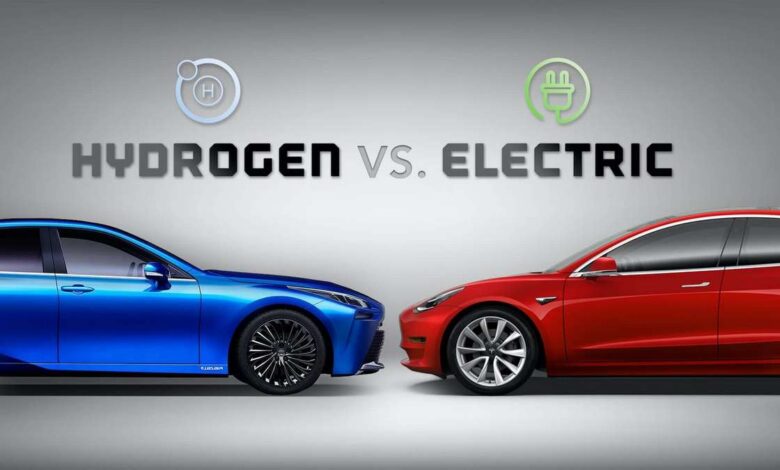Are Hydrogen Cars A Real Alternative To Electric Cars?

We tell you the pros and cons of this technology that is set to replace internal combustion cars. The technologies that are being put forward to replace internal combustion engines are varied. The electrification of car fleets is underway, and this is one of the most popular options. However, it is not the only one available. Hydrogen cars also have a lot to say in the race to leave fossil fuels behind. And if you’re looking for a reliable auto shop for your car needs, you can reach out to signalgarage.com for a hybrid service.
But what is the real status of this technology? In the following sections, we talk about the pros and cons of hydrogen cars. We also tell you how they really work and what the environmental implications are.
Hydrogen Car: How The Fuel Works
Although we often make a distinction between electric and hydrogen cars, the similarities between the two are clear. Both need electricity to operate. The difference lies in the method they use to obtain the energy.
Electric cars recharge their batteries from external sources of electricity. The hydrogen car, on the other hand, obtains its energy by oxidising hydrogen in a fuel cell. This process produces electricity, as well as water, which is channelled to the batteries. Finally, the engine gets electricity from the batteries.
In addition to this process, there is another indispensable element: the hydrogen tank. Yes, this element brings the hydrogen car closer to the internal combustion car, because in both cases it is possible to store the fuel that is used to generate the necessary energy.
Advantages Of The Hydrogen Car
With the pertinent review of how a hydrogen car works, it is time to review its advantages.
They Are Very Quiet
Because they run on an electric motor and do not require any internal combustion, these cars are very quiet. In this sense, they have exactly the same advantages as any other electric car.
You Have A Longer Range Than An Electric Car
Although they are just as quiet, hydrogen cars have a longer range than electric cars. As it is possible to store hydrogen in a tank, they are able to offer a range very similar to that of any conventional vehicle.
No Emission Of Toxic Substances Into The Atmosphere
Another strong point of hydrogen is that its use as a fuel does not generate any harmful emissions. Therefore, we are talking about a completely environmentally friendly mobility option. However, this does not mean that they do not emit anything. In particular, they release water vapour.
They Require Little Maintenance
As with electric cars, maintenance is low. It is limited to the usual passive and active safety elements of any other vehicle, such as tyres, brakes and lights, and little else. They do not require large investments in the engine area.
Refuelling Time Is Similar To That Of Combustion Cars.
One of the concerns for those buying an electric vehicle is the refuelling time. The hydrogen option solves this problem. The refuelling time for a hydrogen car is no more than 3 to 4 minutes. In this way, the refuelling time is similar to that of an internal combustion car that runs on petrol or diesel.
Is A Commitment To Ecology With A Zero-emissions Label
The DGT awards the zero-emissions label to cars that are committed to ecological technology. This is the case of hydrogen which, as we have already mentioned, does not emit any toxic substances into the atmosphere. Among the advantages of the Zero label are free parking in central areas of main cities, the elimination of tolls and other tax discounts.
Disadvantages Of Electric Cars
Unfortunately, all that glitters is not gold. Hydrogen-powered cars also have some clear disadvantages.
They Are Very Expensive
This is the main problem with hydrogen cars. They are still uncompetitively priced, which puts them out of reach of most people’s pockets. In time, it is possible that cheaper models will appear, but for the time being, buying a car with these characteristics is a large investment for the consumer.
Few Filling Stations Offer Hydrogen.
Another setback is that the supply of hydrogen in specialised establishments, such as petrol stations, is still in the minority. To give you an idea, in 2020 there were only six distribution points available in Spain. And in developed countries such as Germany, the goal is to reach 500 distribution points during this decade.
Have Less Space Due To Components
The space required for the necessary components, such as the tank or the fuel cell, has direct consequences on the size of the vehicle. It is difficult to find small models that include this type of technology. In addition, the boot is one of the spaces that suffers the most from component penalties.
There Is Little To Choose From
At the moment, few brands offer cars that run on hydrogen. So when it comes to buying a model, consumers are spoilt for choice. If you want to start looking at some of the models currently available, here are some examples:
- Hyundai NEXO
- Toyota Mirai
- Honda Clarity Fuel Cell
- BMW i Hydrogen NEXT
- Hopium Machina
Have A Shorter Lifespan
Finally, another problem with hydrogen vehicles is that their lifespan is shorter than that of combustion cars. According to safety regulations, the useful life of a hydrogen tank is 15 years. The fuel cell, on the other hand, loses power over time. A hydrogen car with 225,000 kilometres can lose up to 15% of its power.